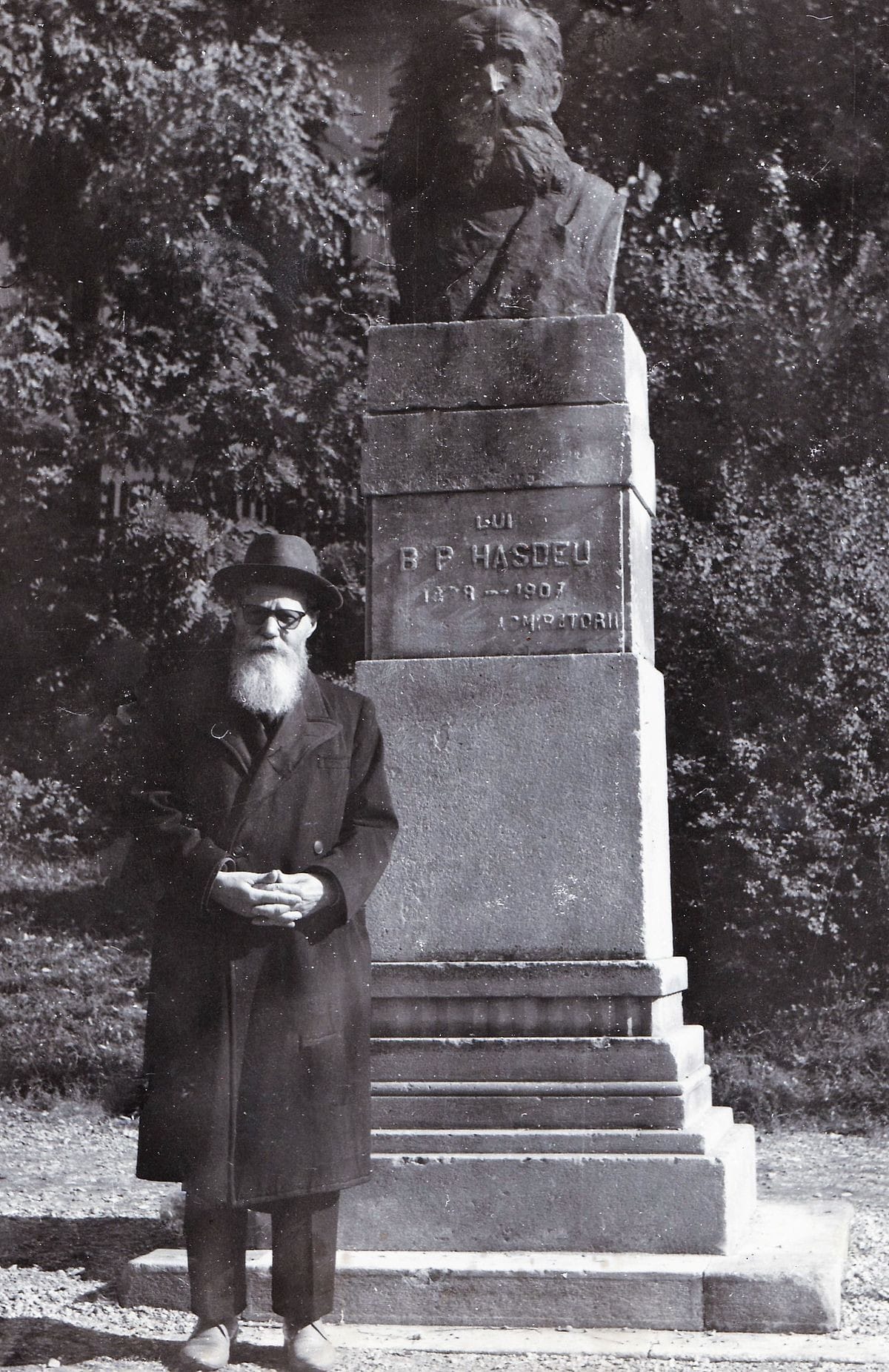
Nichita Smochină
Nichita Smochină (Romanian pronunciation: [niˈkita smoˈkinə]; Moldovan Cyrillic: Никита Смокинэ, Russian: Никита Парфеньевич Смокина, Nikita Parfenievich Smokina; also known as Mihai Florin; 14 March 1894 – 14 December 1980) was an ethnic Romanian activist, scholar, and political figure from what is now Transnistria. He is especially noted for campaigning on behalf of Romanians in the Soviet Union. He was first active in the Russian Empire, serving with distinction in World War I. He turned to Romanian nationalism in 1917 when he was serving as an officer in Russian Transcaucasia. Smochină met Bolshevik leader Vladimir Lenin, recording Lenin’s then-tolerant views on Romanian emancipation. Smochină was then active in the Ukrainian People’s Republic, where he led the general caucus formed by Romanians in Tiraspol. He was also part of the Central Council, and earned his reputation as a champion of Transnistrian Romanian interests.
An anti-communist, Smochină narrowly escaped the Bolsheviks. In late 1919, together with his surviving family, he crossed into Greater Romania, making it their second home. As a protégé of historian Nicolae Iorga, he earned his academic credentials and made himself internationally known as an expert on minority rights. At the start of the 1920s, he contributed to historical research, ethnography and folkloristics, as well as jurisprudence. He became noted as an expert on Transnistria, which, under Soviet Ukrainian rule, formed a “Moldavian ASSR”. His books covered the region’s Russification and the introduction of irreligion, being singled out as a dangerous element by official representatives of the Soviet Union. Smochină’s interwar activism also extended into humanitarian efforts, including the welcoming of refugees in Romania fleeing the Great Ukrainian Famine. His scientific work included a recovery of pre-Bolshevik or anti-Russian Romanian folklore in Transnistria and beyond.
During most of World War II, Smochină initially backed the authoritarian regime of Ion Antonescu and paid service to Gheorghe Alexianu’s Transnistria Governorate. He later criticized the antisemitic surge, as embodied in the Odessa massacre. By 1942, he had become noted for his involvement in a conflict with Alexianu and Ștefan Bulat, but found renewed backing from the Antonescu government. He eventually left the region, alongside 10,000 Romanian refugees, during the Soviet counter-offensive of 1944. His activities as a folklorist, along with his exposure of Soviet brutality, made him a wanted man once the communist regime took over Romania. This meant Smochină had to live under assumed names until the mid 1950s. He was eventually captured, sent to prison, and stripped of his academic honors. Partly reinstated during national communism in the late 1960s, he spent his final decades encouraging the second-generation communist authorities to take a firmer stance against controversial Soviet policies such as “Moldovenism”.
More Details
- Other Names :Nichita P. Smochină,Nichita Smochină,نيكيتا سموكينا
- WikiPedia Page
- Country : Romania
- Born on 14 December